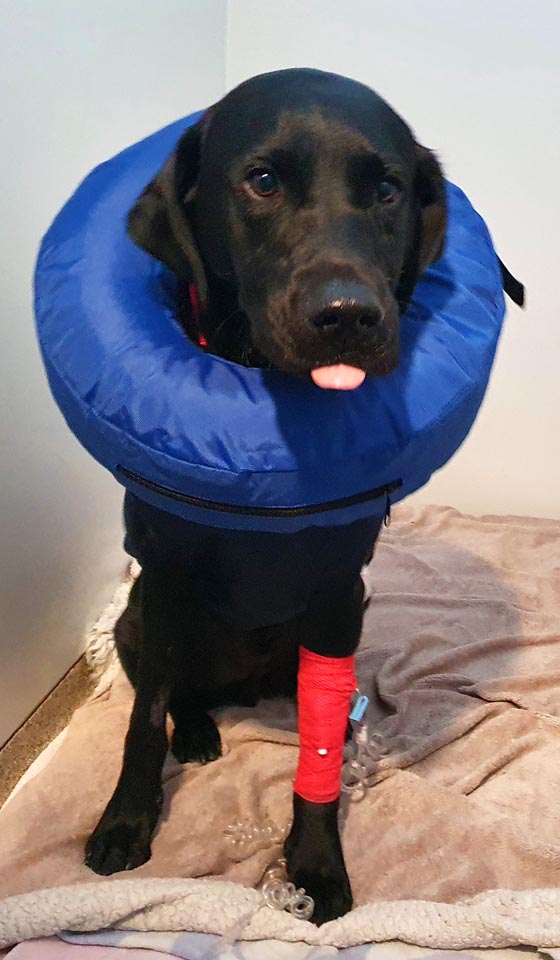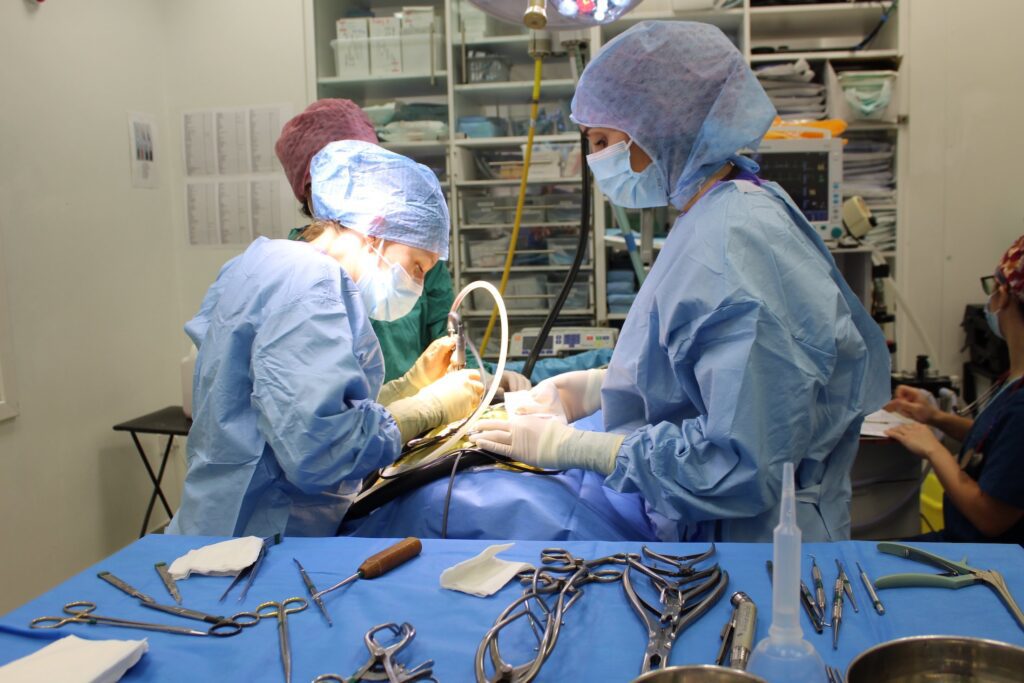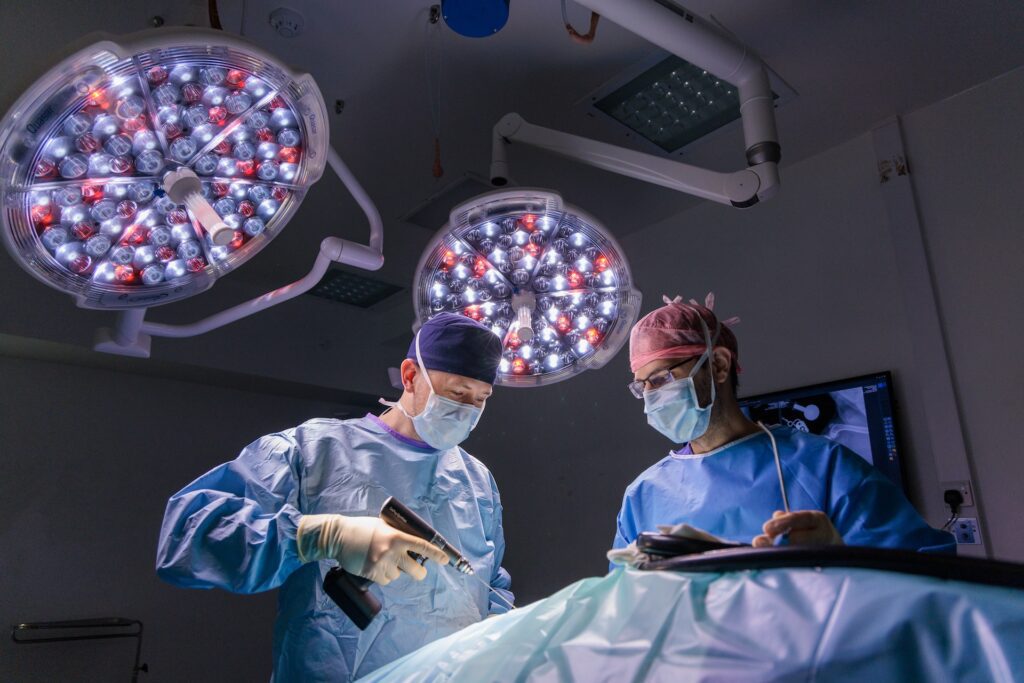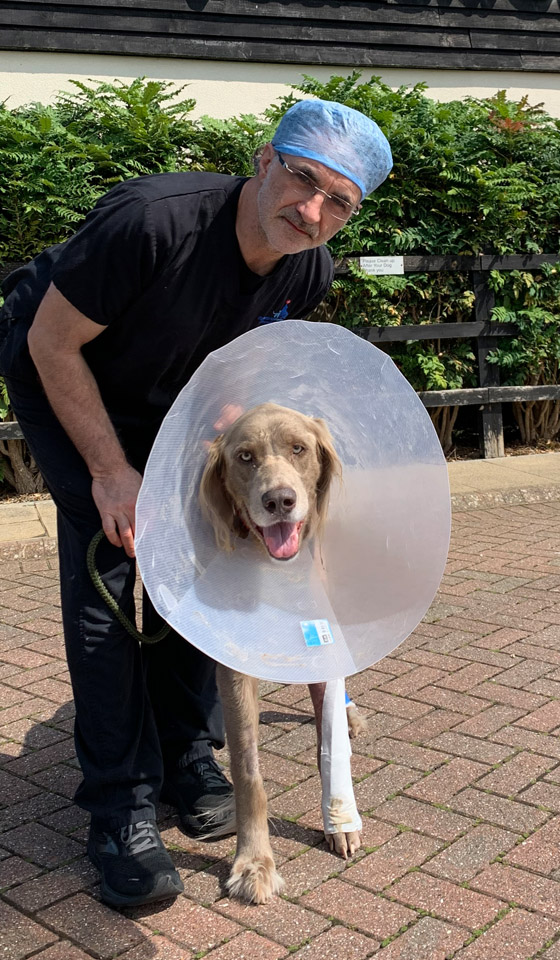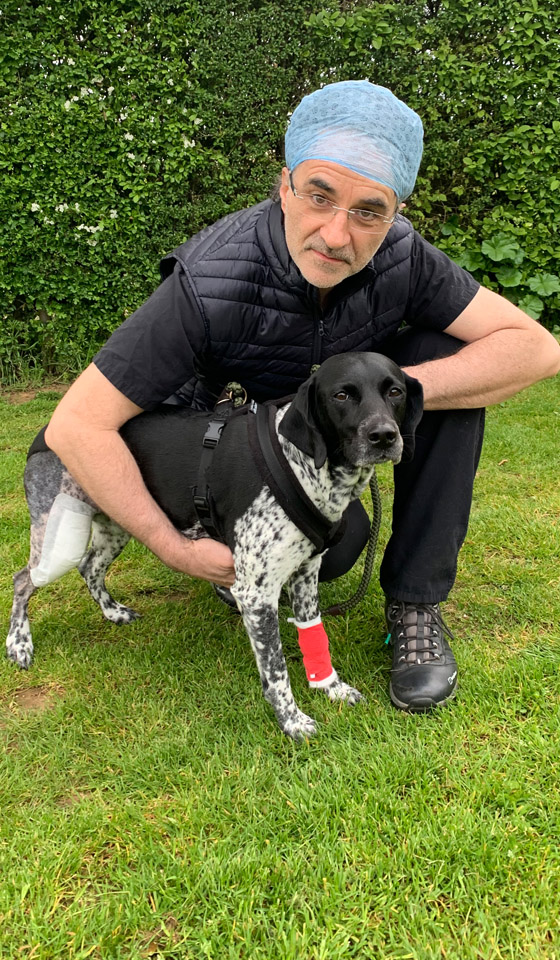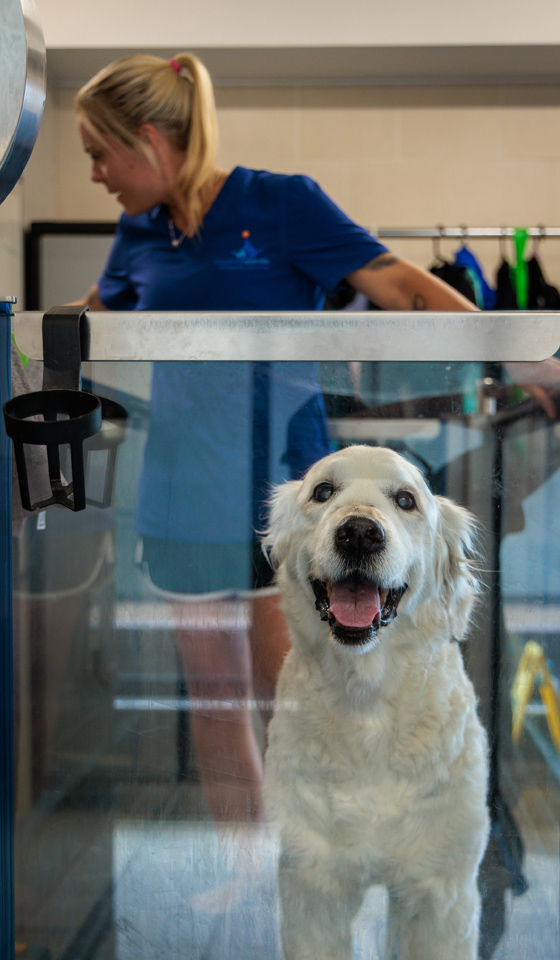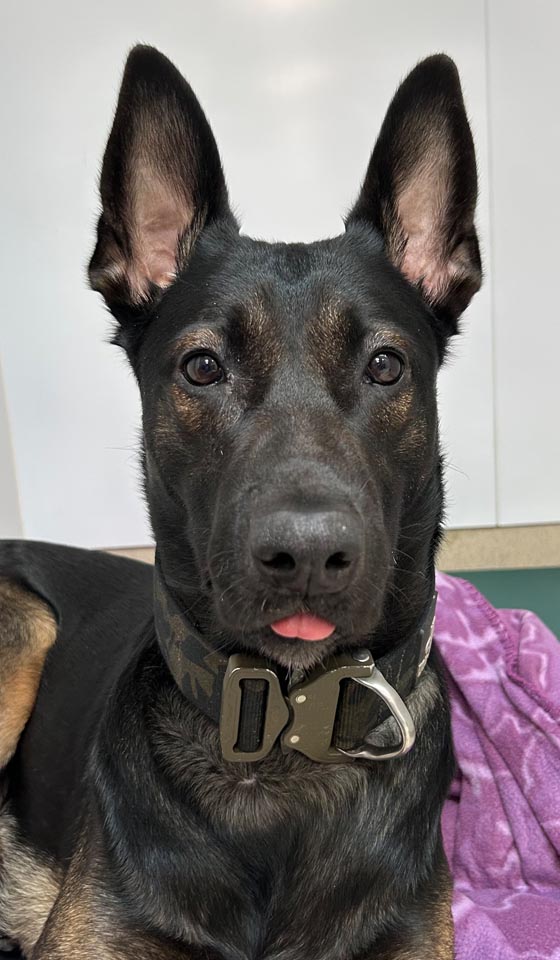On arrival Frank was unable to stand or walk, he was in shock and very painful. We were very concerned about a possible spinal injury. Under the combined care of Resident Joana Tabanez from the neurology team, Surgical Resident Nuria Comas and Senior Surgeon Susan Murphy, Frank’s injuries were assessed and he was treated for shock.
Once stable, he underwent CT and radiographic imaging to diagnose the full extent of his injuries. Frank’s injuries were significant.
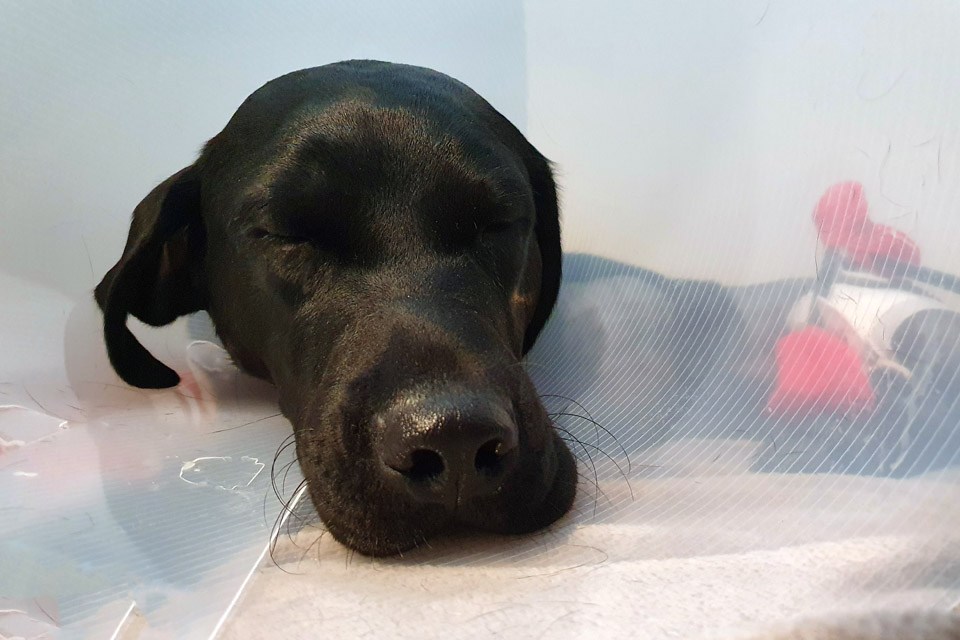
Frank’s imaging
He had collapsed lungs (bilateral pneumothorax), a jaw fracture (caudal mandibular) and a fractured knee cap (patella). His lungs were collapsed due to “free air” in his chest, which can be life-threatening. Tubes were placed in his chest cavity to remove the free air so that his lungs could re-inflate and Frank could breathe properly.
Intensive care
Frank needed intensive care for four days. His chest was drained regularly until his lungs had healed sufficiently to allow us to remove his chest tube. Thankfully Frank’s jaw fracture was small and in a location that did not require surgery.
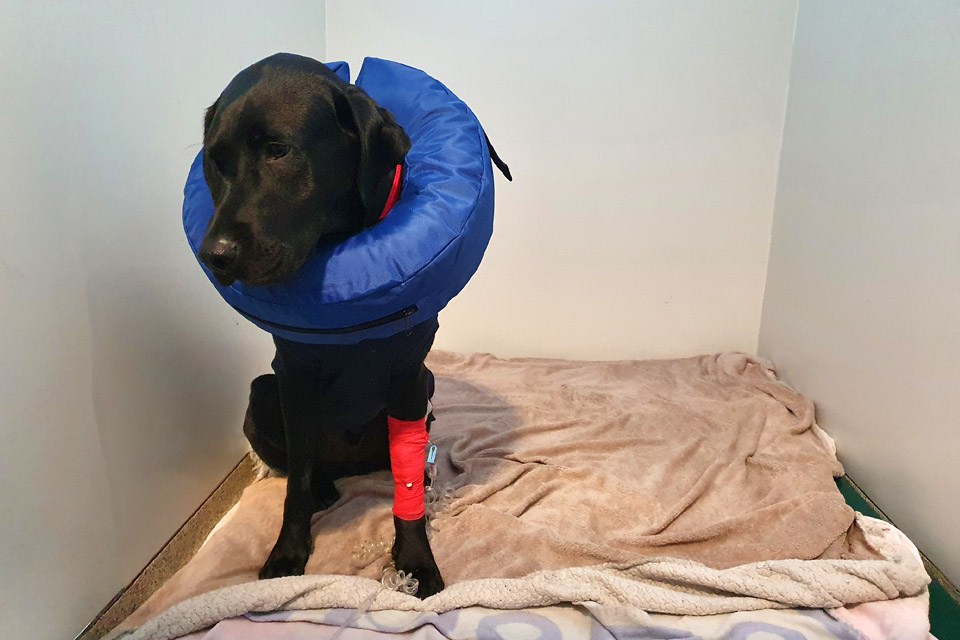
Remaining true to his Labrador nature, Frank was able to eat without any concerns. He was also now stable enough to be anaesthetised for surgery to repair his fractured patella.
The patella was fixed with a pin and a wire and then an external frame (an external skeletal fixator or ESF) was fitted to prevent Frank from flexing and extending his knee. Too much movement in the knee could prevent the patella from healing.
Two days after surgery Frank was up, wagging his tail and ready to continue his recovery at home. We look forward to seeing him back in a few weeks to have his frame removed.
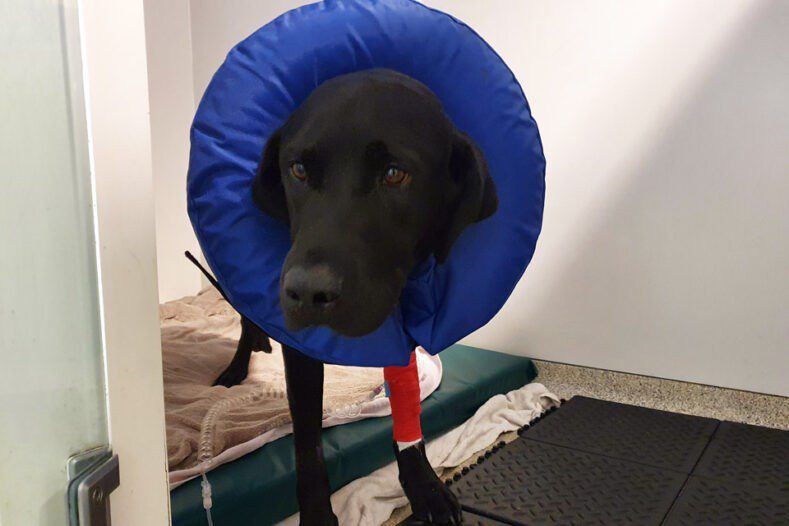
Read more about patellar luxation.
